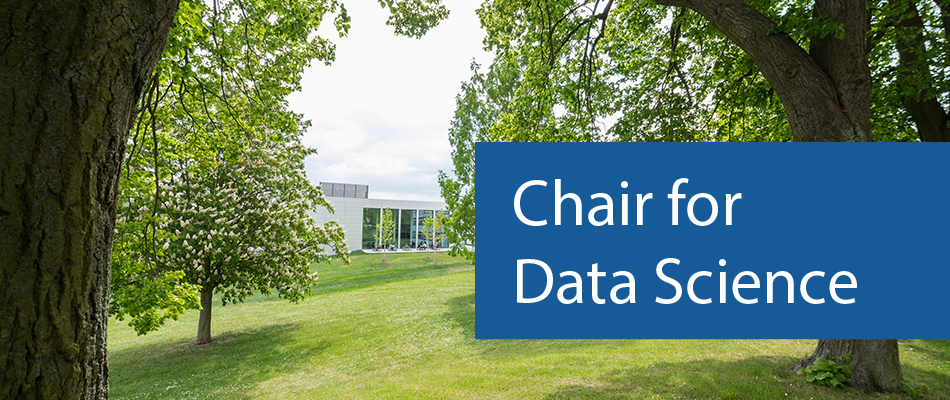Chair for Data Science & Digitization
- Chair for Data Science and Digitization
-
Prof. Dr. Nicolas Pröllochs
Licher Straße 62
D-35394 Gießen
nicolas.proellochs@wi.jlug.de
Personal Website: https://www.nproellochs.com
- News
-
BWL XI: Research featured in The Washington PostOur research studying community-based fact-checking on X/Twitter has been featured in The Washington Post.
-
BWL XI: Paper in EJORA new research paper has been accepted for publication in the European Journal of Operational Research (EJOR; VHB: A). In our study, we develop, train, and evaluate a tailored, fused large language model to predict startup success.
-
BWL XI: Paper accepted in PNAS NexusA new research paper has been accepted for publication in PNAS Nexus. Based on a preregistered survey experiment, our work demonstrates that context matters in fact-checking on social media and that community notes might be an effective approach to mitigate trust issues with simple misinformation flags.
-
BWL XI: Best Poster Award at WebSci '24Our paper "Community notes increase trust in fact-checking on social media" has won the "Best Poster Award" at ACM WebSci '24.
-
BWL XI: Two posters accepted at WebSci 24Two papers have been accepted for poster presentation at the ACM Web Science Conference (WebSci 24).
-
BWL XI: New paper accepted at CSCWA new research paper with researchers from the University of Luxembourg has been accepted for publication in the Proceedings of the ACM on Human-Computer Interaction (CSCW '24). In this study, we perform a large-scale empirical study to analyze whether the introduction of the Community Notes feature and its roll-out to users in the US and around the world have reduced engagement with misinformation on X/Twitter.
-
BWL XI: Paper accepted at WWWA new study has been accepted for publication as a short paper at The Web Conference (WWW). The paper empirically analyzes 156 million "Statements of Reasons" from the DSA Transparency Database to shed light on content moderation decisions of social media platforms in the EU.
-
BWL XI: Two papers accepted at CSCWTwo new research papers have been accepted for publication in the Proceedings of the ACM on Human-Computer Interaction (CSCW '24). CSCW is a premier publication outlet in data science with a low acceptance rate (CORE Ranking A).
-
BWL XI: Paper in Nature Human BehaviourA new article has been accepted for publication in Nature Human Behaviour (IF: 29.9). Together with researchers from LMU Munich, Stanford University, Max Planck Institute, Georgetown University, and Georgia Tech, we offer suggestions for how research can help tackle the threats arising from AI-generated disinformation on social media.
- Featured Research: Moralized language predicts hate speech on social media
-
This study provides large-scale observational evidence that moralized language fosters the proliferation of hate speech on social media. Specifically, we analyzed three datasets from Twitter covering three domains (politics, news media, and activism) and found that the presence of moralized language in source posts was a robust and meaningful predictor of hate speech in the corresponding replies. These findings offer new insights into the mechanisms underlying the proliferation of hate speech on social media and may help to inform educational applications, counterspeech strategies, and automated methods for hate speech detection.
- Research paper at PNAS Nexus (open access)
- Media coverage in Psychology Today
- Blog post on PsyPost
- Featured Research: Negativity Drives Online News Consumption
-

Online media is important for society in informing and shaping opinions, hence raising the question of what drives online news consumption. Here, we analyze the causal effect of negative and emotional words on news consumption using a large online dataset of viral news stories. Specifically, we conducted our analyses using a series of randomized controlled trials (N = 22,743). Our dataset comprises ∼105,000 different variations of news stories from Upworthy.com that generated ∼5.7 million clicks across more than 370 million overall impressions. Although positive words were slightly more prevalent than negative words, we found that negative words in news headlines increased consumption rates (and positive words decreased consumption rates). For a headline of average length, each additional negative word increased the click-through rate by 2.3% Our results contribute to a better understanding of why users engage with online media.
- Research paper at Nature Human Behaviour
- Media coverage (selection): ARD, FAZ, Heise, Deutschlandfunk, ORF, Psychology Today, The Atlantic


